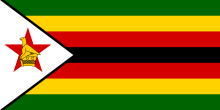Resource information
This Act establishes the Agricultural and Rural Development Authority under section 3 as a body corporate. The operations of the Authority shall, subject to this Act, be controlled by a Board constituted under section 5. For the better exercise of its functions and powers the Board may establish one or more committees (sect. 12). Subject to this Act and any other enactment, the functions and duties of the Authority shall be: (a) to plan, co-ordinate, implement, promote and assist agricultural development in Zimbabwe; (b) to prepare and, with the agreement of the Minister, to implement schemes for the betterment of agriculture in any part of Zimbabwe; (c) to plan, promote, co-ordinate and carry out schemes for the development, exploitation, utilization, settlement or disposition of State land specified in the Third Schedule; (d) any other functions and duties which may be imposed upon the Authority by any enactment. The President may, by Statutory Instrument, amend the Third Schedule (sect. 18). Powers of the Authority are specified in the First Schedule.



